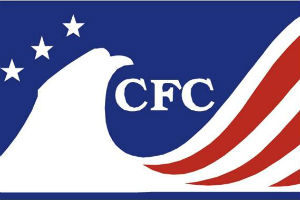Nonprofit executives took to the Capitol Hill Wednesday afternoon to express concerns about proposed changes to the Combined Federal Campaign (CFC). The primary issues are the elimination of paper transactions, a vague application fee for participating charities and shifting campaign implementation from a local to regional level.
The House of Representatives Committee on Oversight and Government Reform’s Subcommittee on Federal Workforce, U.S. Postal Service and The Census heard testimony for about an hour from four nonprofit executives, as well as an associate director in the Office of Personnel Management (OPM), which oversees the CFC.
Nonprofits fear that moving away from donations by cash and check will stifle giving and scare away some donors. “Allowing donors to give in the method most convenient and secure for them is the key to donor satisfaction and increased participation,” said Kalman Stein, president and CEO of EarthShare in Bethesda, Md. “Forcing people to give in a manner they are not comfortable with is not conducive to encouraging people to participate in the giving process,” he said.
The CFC raised about $258 million last year, with more than 80 percent of donors using paper forms of giving. OPM received some 1,400 comments about the proposed changes during the public comment period that ended last month.
Mark Lambert, associate director of merit system accountability and compliance for OPM, defended the changes. “We would attract new, younger donors used to operating online,” he said. When pressed for a cost savings estimate by Rep. Tim Walberg (R-Mich.), Lambert could not give a figure but said the savings would be “significant.”
Shifting from a local governance structure to a regional would eliminate the all-important local connection, according to Debby Hampton, president and CEO of United Way of Central Oklahoma in Oklahoma City. “As a result of the proposal, federal employees will no longer be able to make well-informed decisions about how they can support charities in their communities,” she said.
Ju’Coby Pittman, president and CEO of Clara White Mission in Jacksonville, Fla., testified that the “proposed rule changes include a major reorganization of the CFC that will limit the local, face-to-face contact and communication that is necessary to be able to explain our charity’s mission, recruit volunteers and advocate for a cause.”
An application fee paid by participating nonprofits could dissuade smaller nonprofits from even participating in the CFC. Ken Berger, president and CEO of Charity Navigator in Glen Rock, N.J., testified that 83 percent of U.S. nonprofits have less than $1 million in annual revenue. “The smaller charities that can be heavily dependent on the CFC dollars, even if a small mount, could end up paying a correspondingly higher rate for the benefit that they receive,” he said. “In many cases, I believe that this burden could be enough to discourage the smaller charities from participating in the program,” he said.
Lambert confirmed that the fee structure is still undetermined. Administration costs of about $28 million last year were covered by a percentage of donations. The rationale behind this proposed change is to shift the burden of administration costs from donors to charities. For Berger, however, that argument doesn’t really hold water. “Much, if not all, of the charities’ money comes from donors in the first place,” he said, “so when the charity pays the upfront fee for participation, it’s donors’ money that’s being used.”
Other proposed changes include:
- The campaign solicitation period would start and end one month later, moving from Sept. 1-Dec. 15 to Oct. 1-Jan. 15.
- New employees would be provided the opportunity to make a payroll deduction within 30 days of being hired.
- A new Disaster Relief Program would allow donations within hours of a disaster.
- The responsibilities of the Local Federal Coordinating Committees would be reduced and the name changed to Regional Coordinating Committees.
- OPM would provide additional training and oversight for Regional Coordinating Committees.
|
Help the Nonprofit Community by Participating in a Survey! Complete NPT’s 2013 Salary and Benefits Survey and you will receive a FREE Executive Summary of the results as well as 50% off the full report. |
